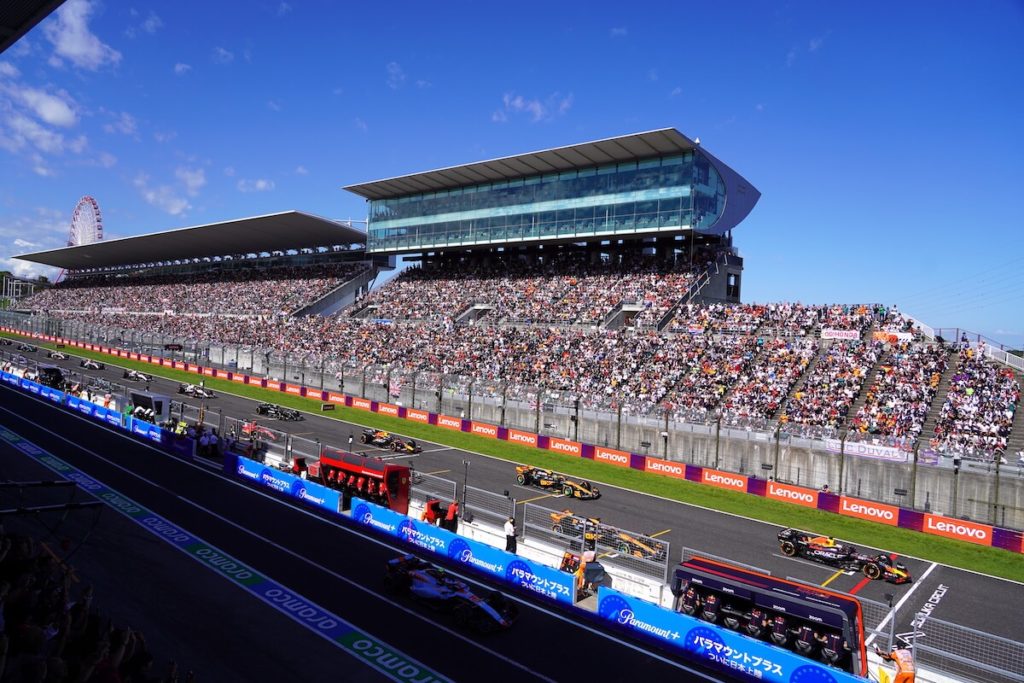
The Suzuka circuit has been home to the Japanese Grand Prix for all but two years since 1987. Its unique ‘figure of 8’ layout, which includes the fearsome 130R corner, has been host to many memorable F1 moments over the years, including several championship deciders.
- This post contains affiliate links. We may receive a commission if you make a purchase after clicking on one of these links
The Japanese Grand Prix has been staged over 40 times, though not all races have been part of the Formula 1 World Championship. A record 13 championships have been decided in Japan, largely due to the race having a late-season calendar slot for much of its existence. The first (non-championship) race was held on the Suzuka Circuit in 1963, shortly after the circuit had been built by Honda.
Over the years, the Japanese Grand Prix has been shared by Suzuka and Fuji Speedway, owned by Toyota. It was in Fuji that Japan first hosted a round of the F1 world championship in 1976. The race was run under atrocious wet conditions, as depicted in the film Rush. James Hunt finished third and was crowned world champion over his title rival Niki Lauda, who refused to risk his life in the treacherous conditions.
Fuji would go on to host the Japanese Grand Prix again in 1977 but this was to be the last time that the event was held for ten years. The race failed to capture the imagination like the previous season’s title decider and some of the sport’s top names – including newly-crowned 1977 champion Niki Lauda – did not race in the event. During the race, a marshal and photographer were killed by flying debris. Though both were standing in a prohibited area at the time, the incident raised safety concerns about the track. Furthermore, travel complications and financial worries persuaded F1 to leave the Japanese market. The Japanese Grand Prix appeared on the provisional 1978 calendar and was scheduled to take place in April – but the event never came to fruition.
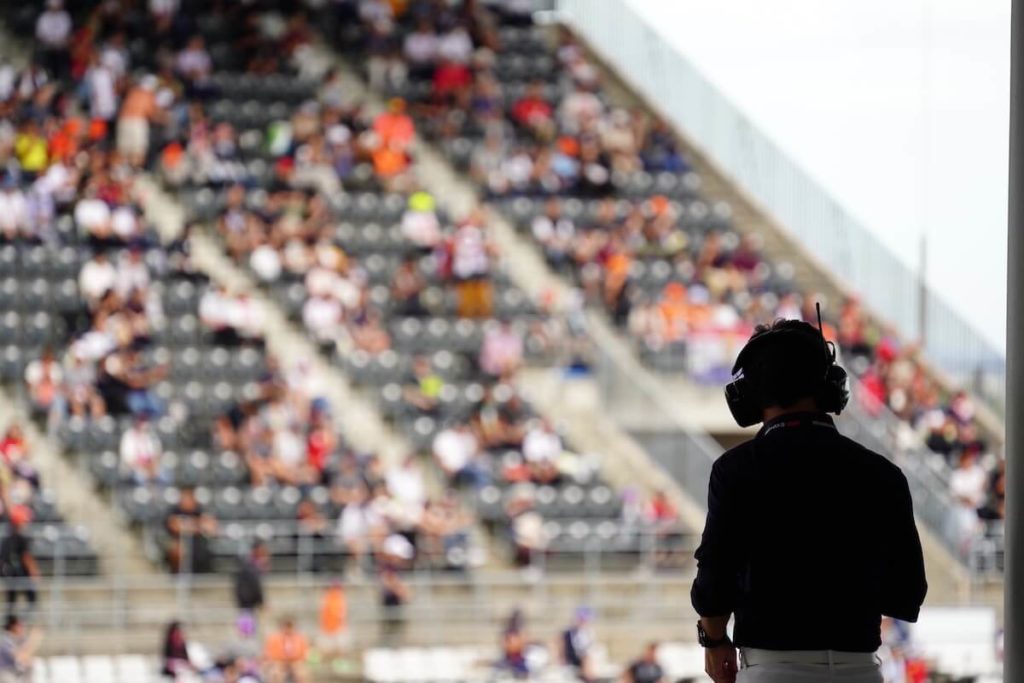
Suzuka Enters F1 folklore
Suzuka was lined up to host the return of the Japanese Grand Prix in 1985, but delays in bringing the circuit up to F1 standards meant that the track finally hosted its first World Championship Formula 1 race in 1987. The venue, owned by Honda, was an immediate hit with both fans and drivers.
The circuit soon earned its place in Formula 1 folklore. Held towards the end of the season, the Japanese Grand Prix decided the championship for five consecutive years between 1987 and 1991. Among those title deciders were two famous and controversial showdowns between Ayrton Senna and Alain Prost. The duo collided at the final chicane in 1989, before coming together at the opening corner one year later.
Suzuka’s popularity continued to increase over the 1990s, regularly attracting in excess of 300,000 fans over each Japanese Grand Prix weekend. Damon Hill, Mika Hakkinen and Michael Schumacher would all record title wins at the track as the new millennium dawned.
By 2006, Suzuka’s attendance had reached an all-time high. Multiple factors contributed to that year’s impressive weekend attendance of 361,000. Honda had taken full ownership of the former BAR team in 2006 and Jenson Button gave the team their first win at the Hungarian Grand Prix. There was also a Japanese team on the grid that year, with Japanese drivers Takuma Sato and Sakon Yamamoto racing for the short-lived Super Aguri team.
F1’s Return to Fuji
Despite its massive popularity, the 2006 Japanese Grand Prix was expected to be Suzuka’s final turn at hosting the event. From 2007, the Japanese Grand Prix was to move back to Fuji Speedway, 30 years on from the venue last hosting an F1 race.
The Fuji track underwent a major overhaul – led by Hermann Tilke – ahead of its comeback. Before F1 had even turned a wheel on the newly redesigned circuit, it was announced that, from 2009, Suzuka would return and the Japanese Grand Prix would alternate between the two venues.
The 2007 Japanese Grand Prix was held in torrential rain and was won by Lewis Hamilton. Better weather prevailed on race day in 2008, with Fernando Alonso taking victory with Renault – the last win for the French manufacturer in Formula 1.
Triumph & Tragedy at Suzuka
In July 2009, it was announced that the planned alternation of Japanese Grand Prix venues would not go ahead. A result of the Global Financial Crisis, Fuji Speedway pulled out of hosting F1 and the Japanese Grand Prix would be run exclusively at Suzuka.
Since becoming the permanent home of the Japanese Grand Prix once more, Suzuka has witnessed both triumph and tragedy. Further championship titles were won at the circuit by Sebastian Vettel in 2011 and Max Verstappen in 2022. The latter saw Suzuka overtake Monza as the venue to have hosted the most title-deciding Grands Prix. In 2012, Kamui Kobayashi became the second Japanese driver – after Aguri Suzuki in 1990 – to finish on the podium at his home event.
The 2014 Japanese Grand Prix will be remembered for all the wrong reasons. Held in heavy rain, the race was red-flagged following an accident for Marussia driver Jules Bianchi. The Frenchman lost control of his car at the Dunlop Curve and collided with a recovery vehicle, which was dealing with an earlier incident. Bianchi sustained a severe head injury in the incident and would never regain consciousness. He died nine months later in hospital in Nice.
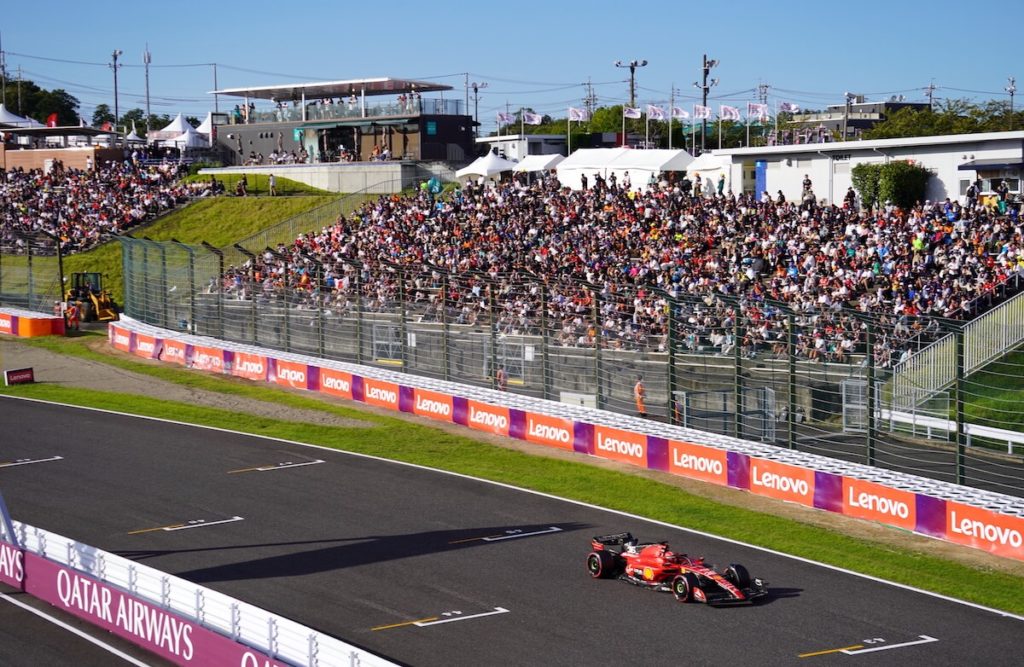
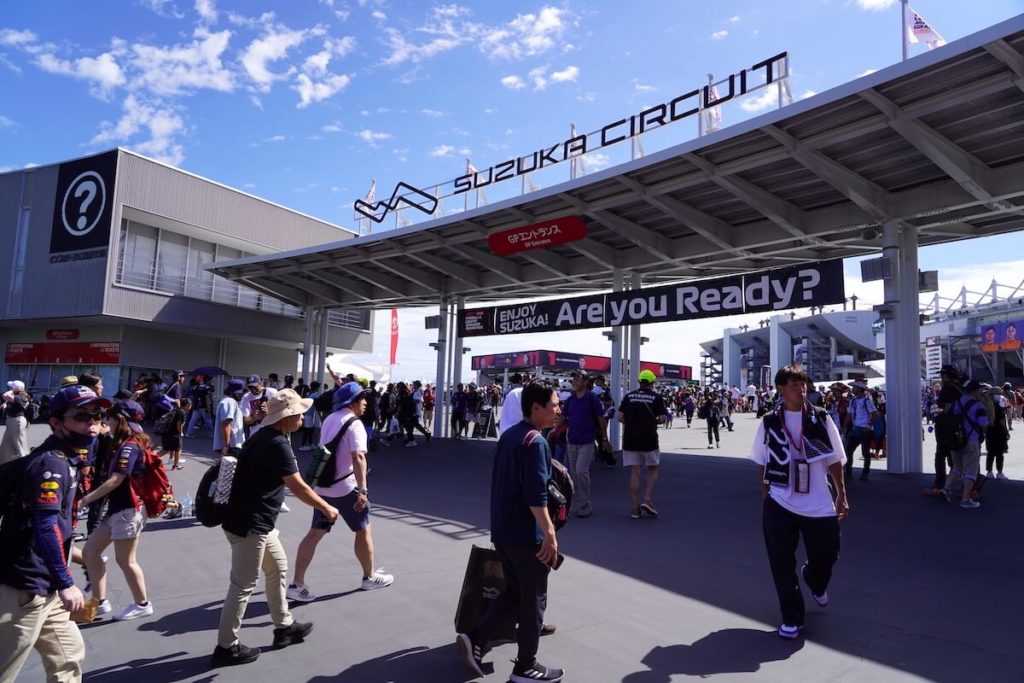
Suzuka to Host the Japanese Grand Prix Until at Least 2029
In April 2021, Formula 1 agreed a 3-year contract extension with Suzuka Circuit that kept the Japanese Grand Prix on the calendar until at least 2024. The Japanese Grand Prix was cancelled due to the coronavirus pandemic in both 2020 and 2021, but the race returned in 2022.
Though the country’s borders remained closed amid the pandemic, Suzuka attracted its largest attendance figure in ten years on its return in 2022, with 200,000 passing through the circuit gates over the race weekend. The attendance figure reached 222,000 in 2023 – the circuit’s biggest crowd since 2006. The weekend figure grew by a further 7,000 in 2024.
In February 2024, despite rumours of a rival bid by Osaka to take over hosting duties, Formula 1 confirmed it had signed a new five-year contract with Suzuka to remain as host of the Japanese Grand Prix until at least 2029.
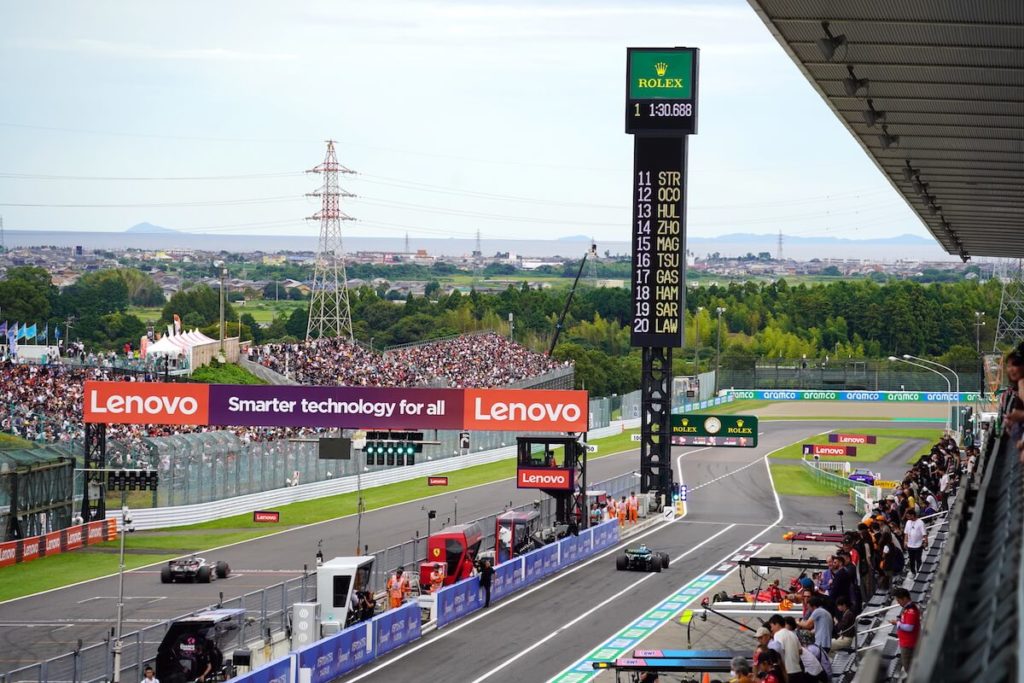
Japanese Grand Prix: Did You Know?
- Michael Schumacher is the most successful driver at Suzuka, having recorded six victories between 1995-2004. Hot on his heels is Lewis Hamilton, who recorded his fifth Japanese Grand Prix victory in 2019. He has won four times at Suzuka and once at Fuji.
- Ferrari, McLaren and Red Bull are the most successful teams at Suzuka, having won here seven times apiece.
- Despite taking five victories in a row between 2000 and 2004, the 2004 Japanese Grand Prix remains Ferrari’s last win in the country.
- Following Ayrton Senna’s disqualification, Alessandro Nannini was declared the winner of the Japanese Grand Prix at Suzuka in 1989, his one and only F1 victory.
- 18 Japanese drivers have competed in Formula 1. The best result for a local driver on home soil was jointly recorded by Aguri Suzuki (3rd in 1990) and Kamui Kobayashi (3rd in 2012).
- In 2024, with a tenth place finish, Yuki Tsunoda became the first Japanese driver to score a point in the Japanese Grand Prix since Kamui Kobayashi 12 years earlier.
- The 1993 Japanese Grand Prix saw Mika Hakkinen take his first of 51 podium finishes in F1.
- Suzuka and Fuji are not the only circuits in Japan to have hosted an F1 race. In 1994 and 1995, Okayama International Circuit (previously known as TI Circuit Aida) staged the Pacific Grand Prix.
- There have been 12 occasions where a World Champion has been crowned at Suzuka, including in five consecutive seasons between 1987 and 1991.
- Max Verstappen took his second title win with Red Bull at Suzuka in 2022, 11 years to the day since Sebastian Vettel took his second title with Red Bull at the track in 2011.
- In addition to Drivers’ Championships, the Constructors’ Championship has been decided here ten times, most recently in Red Bull’s favour in 2023.
- The 2000, 2009 and 2018 Japanese Grands Prix are the only races at Suzuka in which the top three finished in the same order as they started.
Memorable Moments in the Japanese Grand Prix
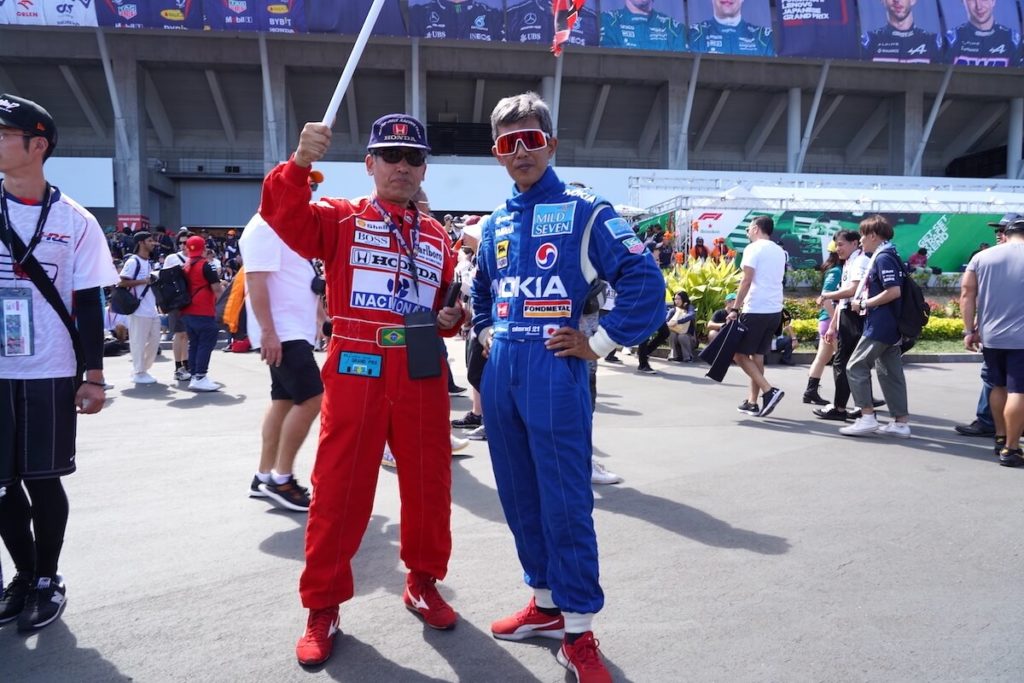
1989 Japanese Grand Prix: Senna and Prost collide
The events of the 1988 Japanese Grand Prix are still argued about today. Did Alain Prost deliberately crash into Ayrton Senna? Was Senna wrong to have tried such a bold move? Whatever your opinion, the title-deciding crash between the McLaren pair goes down as one of the most controversial moments in F1 history.
Prost was eliminated on the spot, while Senna was able to keep going – but was later disqualified from proceedings for the manner in which he re-joined the track. All of this led to Prost sealing his third World Championship, while Alessandro Nannini celebrated the sole victory of his F1 career. Watch the moment Prost and Senna collided.
1990 Japanese Grand Prix: The first lap collision
One year later, the title was once again decided between Senna and Prost in controversial circumstances. Senna had secured pole position for the event, but was unhappy with the side of the grid which he started on.
As many had expected, Prost got the better start in his Ferrari. Senna had already vowed that he would attempt to maintain the lead at Turn 1, regardless of the consequences, and there was an air of inevitability when the pair collided. For a second year in succession a crash had determined the outcome of the Drivers’ Championship – but this year it had done so in Senna’s favour.
2000 Japanese Grand Prix: Schumacher’s first Ferrari title
There were celebrations for Michael Schumacher at the 2000 Japanese Grand Prix as he clinched his third World Championship win – and his first of five with Ferrari. Schumacher was the first Ferrari driver to win the title with the team since Jody Scheckter in 1979. The race weekend is also remembered for a titanic qualifying battle between Schumacher and title rival Mika Hakkinen. Watch the highlights.
2005 Japanese Grand Prix: Raikkonen wins from 17th
What was arguably the greatest drive of Kimi Raikkonen’s career came at the 2005 Japanese Grand Prix. Qualifying resulted in a mixed up grid, with Raikkonen starting only 17th for McLaren. Ralf Schumacher led from pole but was overtaken by Giancarlo Fisichella twelve laps in.
Raikkonen forced his way through the field over the race distance, and found himself in a position to challenge the Renault driver in the closing stages. On the final lap, Raikkonen overtook Fisichella with an audacious move at Turn 1 and went on to take his most remarkable victory. Watch the highlights.
2022 Japanese Grand Prix: Verstappen takes the title
Max Verstappen took an impressive victory at the 2022 Japanese Grand Prix, winning the rain-shortened 40-minute race by almost 30 seconds. There was confusion after the Grand Prix. Many thought that due to the race being shortened, the event would award only half points, meaning that Verstappen would not have enough points to claim the title.
However, in confusing post-race scenes, interviewer Johnny Herbert announced to Verstappen that the Dutchman was in fact World Champion. Due to a change in the wording of the regulations, the shortened race did award full points, meaning Verstappen had enough points to be declared champion for a second successive season.
| Circuit Name | Suzuka International Racing Course |
| Race first held | 1987 |
| Track Length | 5.807km (18 turns) |
| Race Distance | 53 laps (307.471km) |
| Lap Record | 1:30.983, Lewis Hamilton (Mercedes, 2019) |
| 2024 Result | 1st Max Verstappen (Red Bull) 1:54:23.566 |
| 2nd Sergio Perez (Red Bull) +12.535s | |
| 3rd Carlos Sainz (Ferrari) +20.866s |
Get the Inside Line
For the latest Suzuka ticket & event news, subscribe to our mailing list for the 2025 Japanese Grand Prix (April 4-6)



McLaren won 9 times, not seven…
1977 and 2007 Fuji
1988, 1991, 1993, 1998, 1999, 2005 and 2011 Suzuka.
The article says McLaren won 7 times at Suzuka, which is correct.